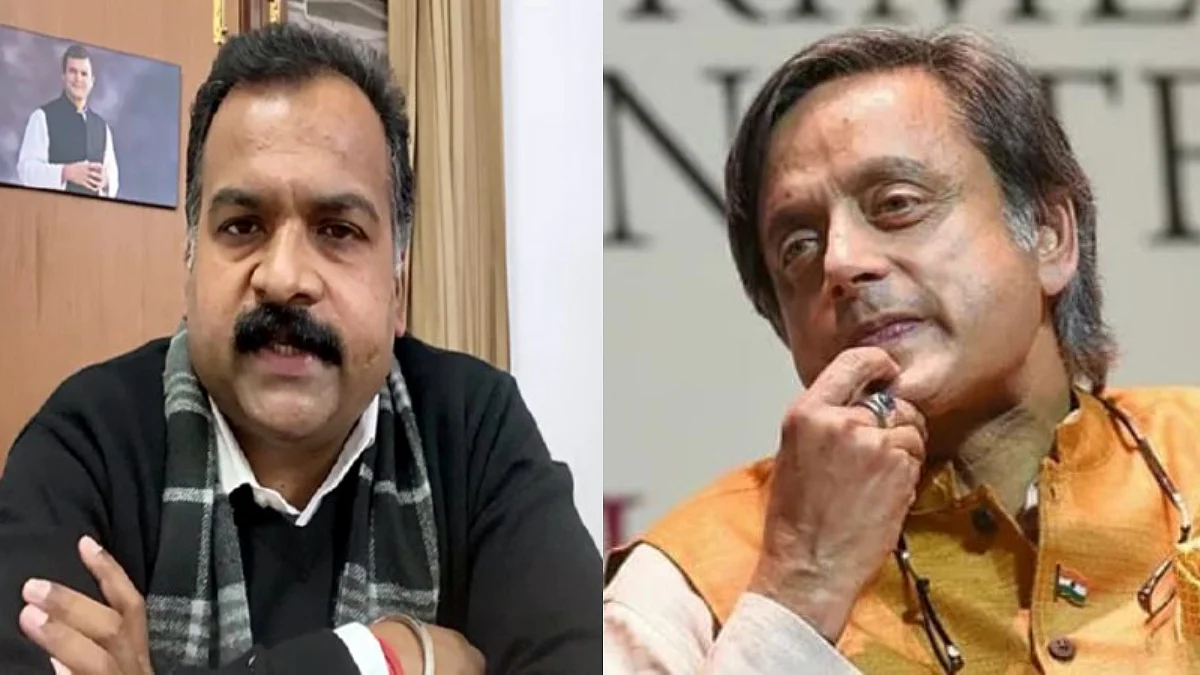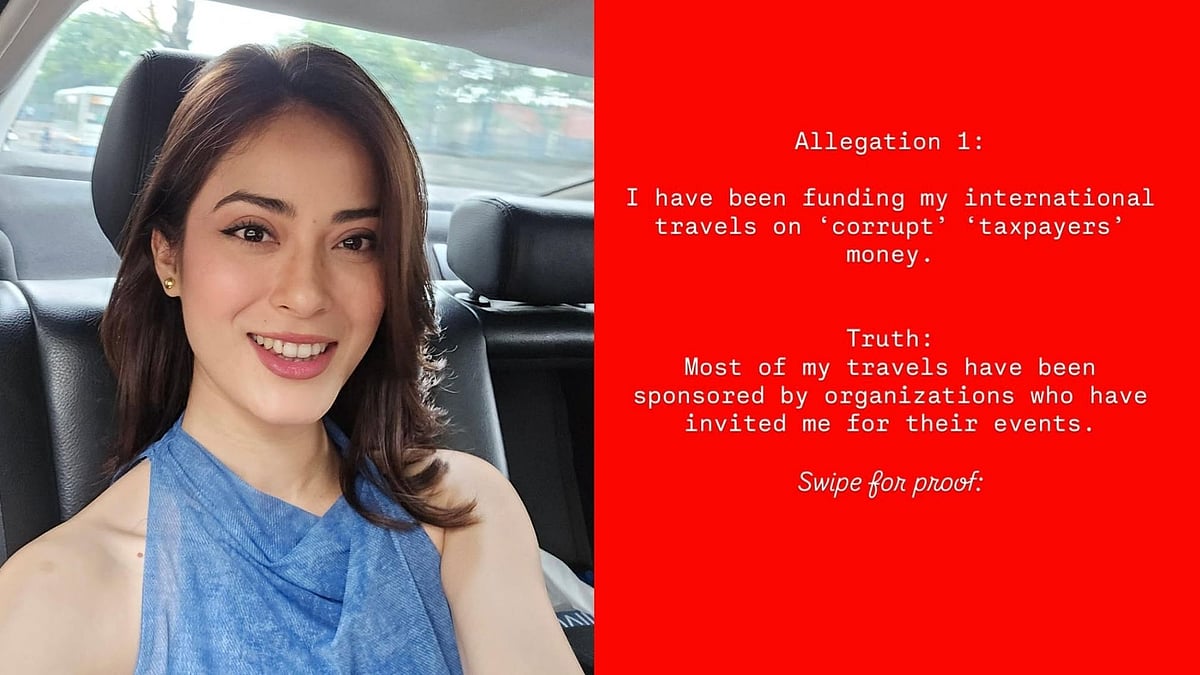Congress MP Shashi Tharoor’s fulsome praise of Prime Minister Narendra Modi’s handling of foreign policy earlier this week, coupled with an implied criticism of his party’s stance on Operation Sindoor, may seem gratuitously provocative. It’s actually very much in character for a leader known to speak his mind.
The intrepid trio of Tharoor, Salman Khurshid and Manish Tewari, in their endorsement of the government’s response to the Pahalgam massacre, have gained popularity—all the more because party colleagues persist in treating them as rogue elements.
By owning and embracing the leaders who answered the call of duty and participated whole-heartedly in India’s global outreach, the Congress could have won public approval. It could have convinced voters that it is committed, no less than the current dispensation, to guarding India’s sovereignty and standing firm against the enemy. In casting them as disloyal, the Congress stance on national security now comes across as somewhat iffy and also explains why the party has been hollowed out in the last decade.
Tharoor has always been bipartisan in handing out praise, both to Modi and to the CPM, which is the Congress’ chief rival in Kerala. At the same time, he has been a trenchant critic of Modi. Last year, he lambasted the Modi government for seeking to “delegitimise dissent” by equating criticism of the PM with being anti-nationalist.
Manish Tewari deviated from the official party line in 2022, when he supported the Agnipath scheme as “reform in the right direction”. He stood firm despite attacks from party colleagues and has done so now, contesting his party’s claim that India had succumbed to US pressure in agreeing to pause Operation Sindoor. That didn’t stop him from endorsing the party line on the Israel-Iran conflict and questioning the government.
Khurshid voiced support for the abrogation of Article 370 and commended Operation Sindoor.
Both Tharoor and Khurshid have expressed disappointment that their party colleagues have privileged political allegiance over national interest. Khurshid famously remarked, “Is it so difficult to be patriotic?” At the same time, he called out Modi’s failure to deny the US claim of mediating between India and Pakistan (that was before Modi emphatically did so on June 18).
If the Congress has lost the capacity to distinguish between political rivals and enemies, the BJP has not. It consciously chose independent-minded Congress leaders for the multi-party delegations that spearheaded India’s post-Pahalgam global outreach. It had no compunctions in leveraging the talents of rivals (and frequent critics) in service of the nation. Khurshid, after all, has been external affairs minister, and Tharoor served the United Nations for almost three decades. Nor are Tewari’s credentials to be sneezed at.
The very fact that the Congress did not suggest their names for the multi-party delegations in the first place is mystifying. If nothing else, the Congress could have taken a cue from AIMIM chief Asaduddin Owaisi, who went above and beyond in conveying the message that Indian Muslims put India first. He demanded that Pakistan be put on the Financial Action Task Force's grey list.
In the Congress, articulating an opinion at odds with that of the leadership is construed as lèse-majesté, an egregious breach of discipline amounting to disloyalty. The result has been an exodus from the upper echelons of the party. The Congress may claim not to miss the likes of Ashok Chavan, Milind Deora, Ghulam Nabi Azad, Kapil Sibal, Captain Amarinder Singh and Ashwani Kumar. Not to mention younger leaders like RPN Singh, Jitin Prasada, Jyotiradiya Scindia, Arvinder Singh Lovely, Jaiveer Shergill, Sanjay Nirupam and Vijender Singh.
To lose leaders who found it politically expedient to jump ship or simply couldn’t deal with the coterie around the first family is one thing. To drive away those who championed India in the international arena would be another. Articulating independent opinions can hardly be compared to floor-crossing or cross-voting.
To be fair, no party leader takes kindly to opposition within the ranks. The restrictions imposed by the anti-defection law, which does not permit MPs or MLAs a conscience vote, have encouraged leaders to take a dictatorial stance. Whether or not a whip is issued, MPs are resigned to being told how to vote and what to say. It’s very rare for a party to grant its members the freedom to vote according to conscience, as the BJD did on the Waqf Bill earlier this year. These restrictions prompted a BJP MP to move a Bill in 2019, seeking the right to a conscience vote. Recently, Vice-President Jagdeep Dhankar also called for an end to the whip system.
The Damocles sword of “anti-party activities” tends to stifle intra-party debate, as independent opinion could well invite a show-cause notice. This leads to the conclusion that the vilification of Tharoor & Co by the likes of Pawan Khera, Jairam Ramesh, Udit Raj and K. Muraleedharan has the sanction of the party leadership.
The Congress should have instinctively understood what the IANS-Matrize poll revealed—that 92 per cent of Indians support Operation Sindoor and 80 per cent believe Modi is the leader most capable of dealing with terror. The number who thought Congress leader Rahul Gandhi would be able to tackle Pakistan was a mere 5 per cent.

Nor should the Congress seek comfort in the recent round of assembly bye-elections, in which the BJP won just one of five seats. PM Modi’s approval rating, according to global tracker MorningConsult, stands at 78 per cent—by far the highest in the world. From the standpoint of public sentiment alone, at this point it makes more sense to stand with the government than against it. Tharoor understands that, so should the Congress.
Bhavdeep Kang is a senior journalist with 35 years of experience in working with major newspapers and magazines. She is now an independent writer and author










